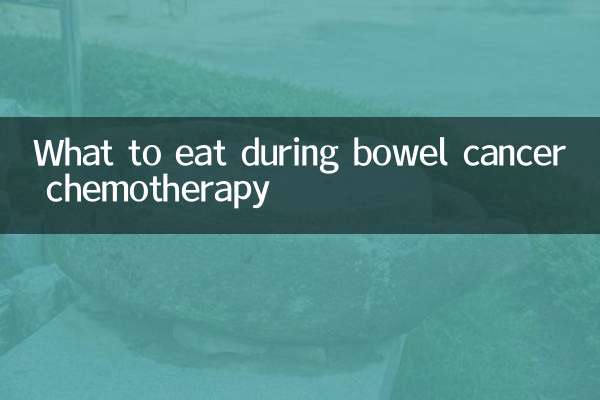What to pay attention to when you have a gastrointestinal cold
Recently, as the weather changes and the seasons change, gastrointestinal colds have become one of the hot health topics. Many people discuss how to prevent and deal with gastrointestinal colds on social platforms and medical forums. This article will combine the hot content of the past 10 days to provide you with a detailed analysis of the precautions for gastrointestinal colds and provide structured data for reference.
1. What is gastrointestinal cold?

Gastrointestinal cold, also known as viral gastroenteritis, is an inflammation of the gastrointestinal tract caused by viruses (such as norovirus, rotavirus, etc.). The main symptoms include nausea, vomiting, diarrhea, abdominal pain and low fever. It differs from the common cold in that it primarily affects the digestive system rather than the respiratory system.
2. Reasons for the high incidence of gastrointestinal colds
| reason | illustrate |
|---|---|
| viral infection | Norovirus, rotavirus, etc. are the main pathogens |
| Unclean diet | Consuming raw, cold, undercooked food or contaminated water |
| low immunity | The elderly, children and people with chronic diseases are more susceptible to infection |
| Seasonal change | The temperature changes greatly in spring and autumn, and the virus is active |
3. Precautions for gastrointestinal colds
1.diet conditioning
During a gastrointestinal cold, the diet should be light and easy to digest. The following are recommended and contraindicated foods:
| Recommended food | taboo foods |
|---|---|
| porridge, noodles | spicy food |
| steamed vegetables | greasy food |
| Apple puree | Raw and cold food |
| Light salt water | sugary drinks |
2.hydration
Vomiting and diarrhea can cause the body to become dehydrated, so fluids need to be replenished promptly. You can drink light salt water, rice water or oral rehydration salts (ORS) in small amounts many times.
3.rest and isolation
Gastrointestinal colds are highly contagious. Patients should rest at home and avoid sharing tableware or close contact with others, especially the elderly and children.
4.drug use
Stomach colds usually do not require antibiotic treatment, but the following medications may be used depending on symptoms:
| symptom | Optional medications |
|---|---|
| diarrhea | Montmorillonite powder, probiotics |
| Vomit | Vitamin B6 (as directed by your doctor) |
| stomach ache | Antispasmodics (such as belladonna tablets) |
4. When do you need medical treatment?
Most gastrointestinal cold patients can recover at home, but if the following conditions occur, they should seek medical treatment promptly:
- Persistent high fever (body temperature exceeds 38.5°C)
- Frequent vomiting or diarrhea leading to severe dehydration (such as decreased urine output, dry mouth, dizziness)
- Blood in the stool or vomitus
- Symptoms persist for more than 3 days without relief
5. Measures to prevent gastrointestinal colds
1.wash hands frequently: Wash your hands with soap and running water for at least 20 seconds, especially before meals and after using the toilet.
2.Food hygiene: Avoid raw food, and cook seafood and meat thoroughly.
3.Enhance immunity: Maintain a regular schedule, exercise appropriately, and supplement vitamins.
4.Avoid contact with sick people: Reduce close contact with patients with gastrointestinal colds.
6. Recent hot questions and answers
According to discussions on social platforms and medical forums in the past 10 days, the following are the issues that users are most concerned about:
| question | answer |
|---|---|
| Is the gastrointestinal cold contagious? | Yes, it is mainly transmitted through the fecal-oral route. |
| Do I need antibiotics for gastrointestinal colds? | Not required unless there is a bacterial infection. |
| How long does it take to resume eating after a gastrointestinal cold? | Recovery gradually occurs after symptoms are relieved, usually taking 1-3 days. |
Summary: Although gastrointestinal colds are common, they can be effectively dealt with through scientific management and preventive measures. I hope this article can provide you with practical help and wish you good health!

check the details

check the details